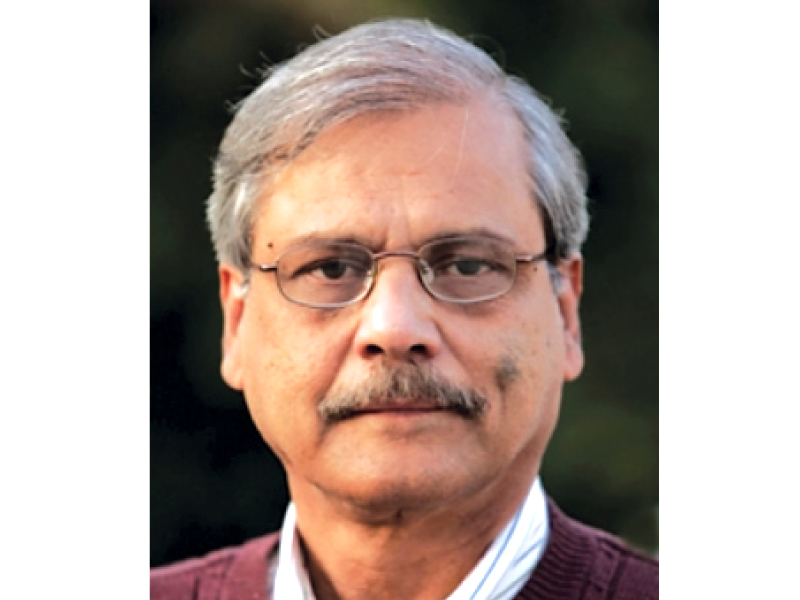
It was the turn of Pakistan’s second largest party, the Pakistan Muslim League - Nawaz (PML-N), to present its manifesto on Tuesday.
The event was held at the Sustainable Development Policy Institute (SDPI) conference hall, which was packed to the brim with journalists and political enthusiasts.
Those present at the conference were skeptical about the lack of attention PML-N paid to militancy and terrorism across the country.
Political analyst Imtiaz Gul criticised the party’s dismissive attitude towards the issue, grilling its representative Senator Sartaj Aziz on whether he had any idea about the menace.
“You don’t feel the need to worry because you are safe unlike PPP and ANP. Tomorrow, rightist parties like PML-N will be targeted too,” said a journalist addressing Aziz.
“Our biggest problem is that military, political and civil groups are not on the same page about this issue. Insurgency cannot be just be curbed by military action, there are many other factors beyond the limits of our power,” the senator responded.
Aziz focused on his party’s promise to revive the economy and double the GDP growth rate from less than three per cent in the past five years to over six per cent during the next five.
The manifesto emphasises on attracting foreign investment in the agricultural and livestock sectors to facilitate exports of high-value products to regional markets and converting at least 50 per cent of remittances — currently standing at USD13 billion a year — into capital for investment.
Motorways, dams, housing projects and the development of new urban centres were also discussed in the manifesto.
According to Aziz, PML-N plans to bring the budget deficit down to four per cent through increased revenues, while raising the tax-to-GDP ratio from nine per cent at present to 15 per cent by the end of 2018.
While the implementation plans presented by the PML-N for economic growth were impressive, many expressed their reservations over the party’s lofty promises.
“What is really needed are structural reforms, which no government seems to have carried out. Stating that the tax-to-GDP ratio will increase to 15 per cent in five years is asking for a miracle,” said analyst Zahid Hussain.
He added that the manifesto was not clear on tax restructuring, abolishment of Statutory Regulatory Orders (SROs), and implementation of the Reformed General Sales Tax (RGST).
Hussain was skeptical about the manifesto’s education policies, stating that “ensuring 100 per cent enrolment in education by 2020 was just plain rhetoric.” He also called on the party to confirm its stance on whether it supported the agriculture tax.
Hussain said the party had missed out the major issue regarding the energy sector — a lack of management.
“We cannot improve the energy sector when the state doesn’t pay its own bills let alone collect them,” he said.
Published in The Express Tribune, April 16th, 2013.

1732441915-0/BeFunky-collage-(12)1732441915-0-165x106.webp)

1732438802-0/BeFunky-collage-(11)1732438802-0-165x106.webp)



1732432596-0/BeFunk_§_]__-(45)1732432596-0.jpg)
1732438009-0/BeFunk_§_]__-(48)1732438009-0.jpg)








COMMENTS
Comments are moderated and generally will be posted if they are on-topic and not abusive.
For more information, please see our Comments FAQ